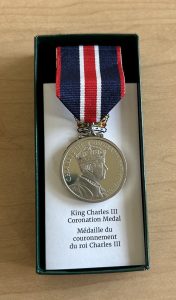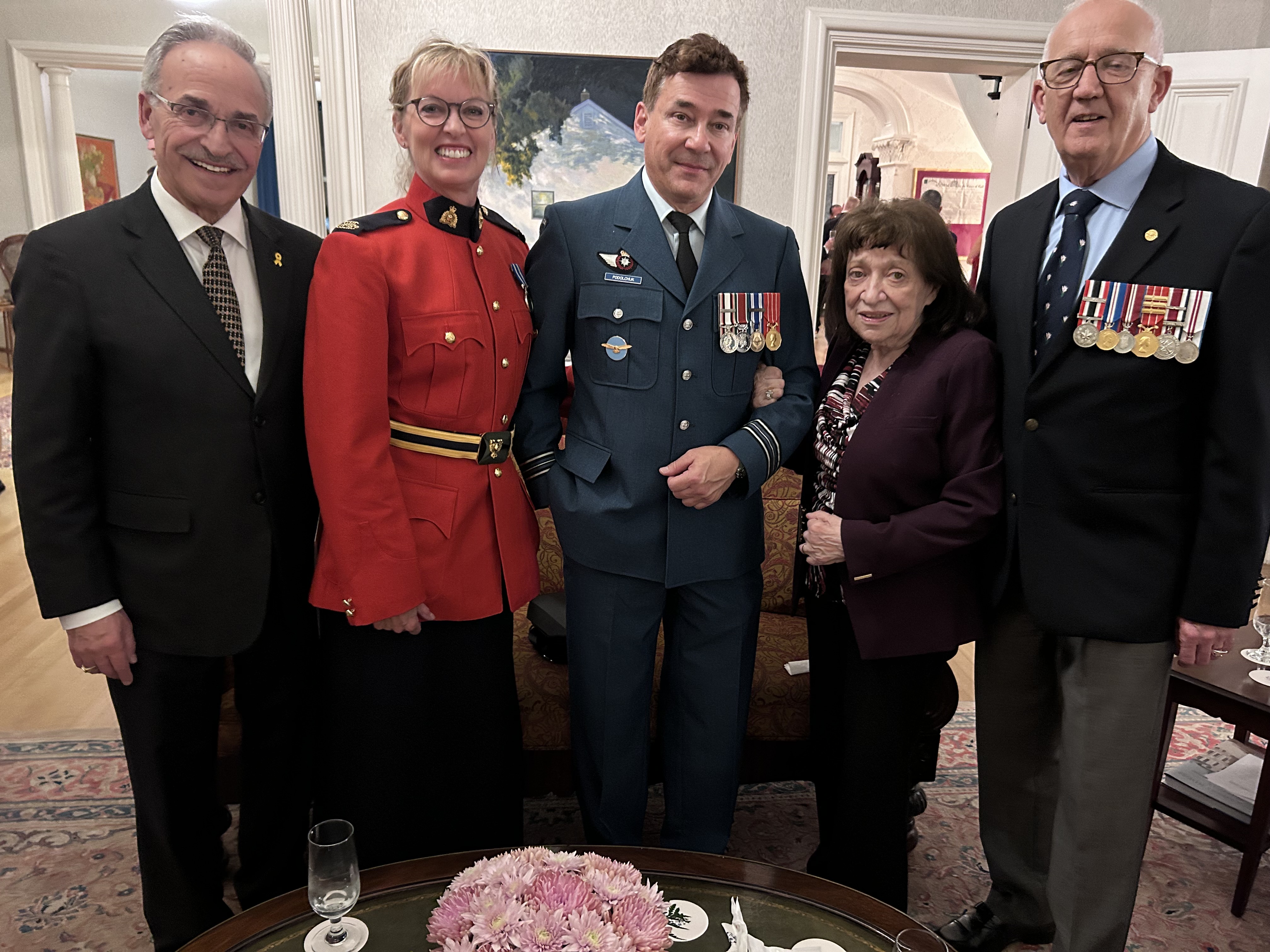Recognizing our Neurodiverse Brains: Navigating Trauma, Triggers and the Power of Self-Awareness
A few weeks ago, I had the immense honor of receiving the King Charles III Coronation Medal alongside 49 inspiring individuals, each dedicated to making a positive impact. The ceremony, held at Government House and presented by the Honourable Lt. Governor Anita Neville, was a proud moment. Clad in my RCMP red tunic, blue skirt, and stetson (hat) with my husband beside me in his military uniform, I was ready to step forward and embrace this recognition.
But as I got out of the car and began putting on my uniform tunic, an unexpected wave of panic set in. It was confusing because I thought I should be happy! My mind raced back to 2009, the last time I wore this uniform to receive a medal. The feelings of being bullied by co-workers and the RCMP organization. Back then, I was met with harsh judgment from a protocol officer who threatened to deny me entry over the slightest imperfection in my appearance. His words “if you have one hair out of place sticking out from under the hat you will not be on parade” triggered a deep sense of insecurity and panic. Another officer’s kind reassurance gave me a sliver of comfort, but that moment left its mark, a reminder of how trauma can linger and resurface even years later.

This time was different. I’m stronger now, with a voice to speak up and a clearer understanding of my own needs and boundaries. I walked toward the Parliament building, not as that anxious person from years ago, but with pride and empowerment. Still, the experience highlighted something profound for me about how my neurodivergent brain responds to trauma and triggers—and how, even in safe settings, old wounds can reappear.
The Neurodiverse Brains and Social Settings
Living with ADHD, I’ve learned that social settings can sometimes bring unexpected challenges. Generally, I enjoy connecting with people, making small talk, and listening to their stories. My natural curiosity has often made these situations feel engaging and people feel comfortable to share. But on this day, as I sat among other medal recipients—each with their own remarkable achievements—I felt my brain struggling to keep up. I wanted to chat, to share in their excitement, yet I found myself shutting down, as though my body was saving energy to “fight” or “flee.”
In moments like these, our neurodivergent brains can fall into protective patterns, often without us realizing it. My body’s reaction was reminiscent of my years on the job, where I operated in a constant state of vigilance, perceiving my environment as a “war zone.” Back then, I needed to shut down emotionally to protect myself. This event, however, was a safe space filled with kind and supportive people. My brain, though, had difficulty distinguishing between a past trauma and the present moment.

Recognizing and Embracing our Triggers
This experience underscored an essential lesson: Our brains hold onto trauma, sometimes overreacting to situations that remind us of past pain. This is especially true for those of us who are neurodivergent; our brains can react strongly to certain triggers, even in environments where there is no real threat. It’s our body’s way of trying to protect us, even if it misinterprets the context.
By becoming aware of how my brain and body respond to specific triggers, I’ve gained tools to manage these reactions more effectively. When I felt my body disconnect from my intentions during the ceremony, I took a few moments to breathe, ground myself, and remind my brain that I was safe. Gradually, my body and mind realigned, allowing me to engage with the people around me.
Moving Forward with Self-Care and Resilience
This experience was a valuable reminder that self-awareness is the foundation of resilience, especially for those of us with neurodiverse minds. Our bodies and brains remember trauma, and recognizing these patterns equips us with the tools to navigate them. The key is not to eliminate triggers but to understand them and create a self-care strategy that empowers us to move through them.
For me, that means having coping mechanisms in place when I feel overwhelmed—whether it’s deep breathing, grounding exercises, or simply giving myself permission to take a step back. Recognizing that my brain sometimes confuses past threats with present situations helps me respond with compassion rather than frustration.

Neurodiverse Brains and the Power of Choice
We can’t change our past, nor can we erase the pain that some experiences may have left behind. But we do have a choice: to carry those lessons forward, without letting them weigh us down. Recognizing how our neurodiverse brains work allows us to navigate challenges with greater self-compassion and control. Trauma does not have to define us or limit our lives.
Instead, we can choose to embrace our unique, neurodiverse brains, learn from our past, and empower ourselves with the tools we need to thrive. Building self-care practices tailored to our needs can help us manage life’s stressors and triggers, allowing us to live our best lives. With awareness, resilience, and a commitment to self-care, we can take the lessons from our past without carrying the pain into our future.
